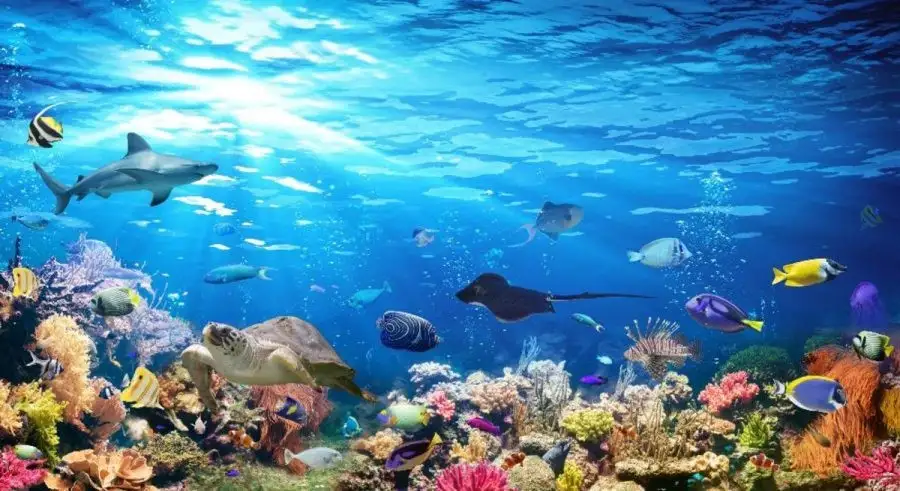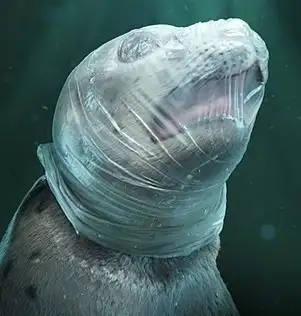Earlier this month, we celebrated World Oceans Day, which sparked conversations around SDG 14 — Life Below Water. The impacts of climate change and plastic pollution on Oceans were prominent topics discussed.
The Importance of Healthy Oceans
Making up 71 per cent of the earth’s surface, the ocean is home to a vast diversity of marine life. In fact, scientists have revealed that 91% of marine species are still yet to be named and over 80% of the ocean has still not been studied. Recently in 2020, scientists discovered a detached, 500-meter coral structure, off Australia’s Great Barrier Reef that was much taller than the Empire State Building. Hence, the little information we currently have on marine life is only but a fraction of the vast biodiversity existing in the oceans still unexplored.

All life on earth depend on the oceans to generate oxygen, control global temperatures, offer vital habitat for numerous marine life, provide food and employment for billions of people, and influence the cultural traditions and identities of coastal communities all over the world. In addition, approximately one-third of the world’s population live within 100 kilometers (60 miles) of a marine coast, and depend on the ocean for their source of livelihood.
Hence, a healthy ocean is essential to the survival of our world. To live longer, and healthier lives, it is our collective duty to care for and safeguard our oceans.
“We need to respect the oceans and take care of them as if our lives depend on it, because they do” — Sylvia Larle.
Healthy oceans regulate the climate and mitigate the impacts of global warming. Since the beginning of the Industrial era, the ocean has absorbed about 30% of global carbon emissions and over 90% of the heat produced by human-generated greenhouse gases. Ocean currents, which move warm water from the equator and cold water from the poles, help the seas absorb solar radiation and disperse it around the world. A large portion of the earth’s weather is controlled by this water movement, which also manages the global climate and balances out the sun’s heat distribution. This has been very pivotal to the regulation of regional temperatures and has made the planet habitable.
Climate Change Impact On Ocean Health
Our oceans are now in grave danger, due to climate change impact. Unprecedented weather occurrences across the globe are already a sign of how climate change is affecting our communities. The ocean is rapidly losing oxygen, becoming warmer, and becoming more acidic. Sea level rise, melting glaciers, and coastal floods all pose growing hazards to our cities.
It is becoming more difficult for many marine animals to survive due to habitat loss and shifting ocean conditions. Millions of marine animals have been forced out of their natural habitat by the rising temperatures, which have also destroyed entire ecosystems. According to the UN Intergovernmental Panel on Climate Change, coral reefs are particularly vulnerable to heat and a 2 degrees temperature rise above pre-industrial levels would entirely wipe out all coral reefs, and approximately 75% will be lost at 1.5 degrees Celsius.
Impact Of Plastic Pollution On Ocean Health
Another cankerworm that has posed a major threat to the health of our oceans is plastic waste. Yearly, the ocean receives an estimated 15 million tons of plastic, resulting in the death of about 100 million marine animals. Plastic ingestion and entanglement are the primary contributors to the extinction of marine life and the breakdown of ocean ecosystems.

In addition, the effects of plastics have resulted in a 400% increase in ocean dead zones (areas without oxygen), while the number of coastal areas with very little oxygen have increased, leading to a mass extinction of marine life and posing a threat to food security. In addition, plastic pollution could also undermine the capacity of the oceans as carbon sinks.
To pay the full cost of the environmental damage being done, it is crucial for governments globally to place a ban on single-use plastics and encourage the reuse, recycling and upcycling of plastic waste, as well as accelerate research on viable alternatives to plastics. Conservation organizations like the WWF have asked for a legally binding international treaty on plastic waste that would include “precise, explicit, and universally applicable standards” for the entire life cycle of plastic products.
Experts have predicted the year 2050 will be a gloomy one for the ocean, with plastics either making up the entire ocean or constituting a larger percentage than marine life.
Action Call
For our oceans to thrive, we must take immediate action to mitigate the impacts of climate change, as well as curb the alarming plastic pollution, in order to ensure that the oceans are healthy enough to sustain the earth for decades to come.
Ocean based climate actions can deliver up to one-fifth of the annual green house gas emission reduction needed to limit global warming to 1.5 degrees by 2050 — OceanPanel
There is therefore the need for collective action, from governments to civil societies, regulatory agencies, financial institutions, business owners, and the general public. In the end, everyone gains from a healthy ocean.
“At the end of the day, the government and local government all bow to public pressure….[Regulatory] enforcement is weak, and environmental litigation is near to impossible. So there’s an urgent need for extensive public participation to generate another kind of motivation.” — As Ma Jun
We cannot thrive as a planet without thriving oceans. What individual action are you taking to contribute your own quota towards ensuring the oceans are healthy enough to sustain the planet for generations to come?
“The greatest danger to our planet is the belief that someone else will save it” — Robert Swan
We would like to know how much impact you are making individually or in your communities towards this course. Do share your insights in the comment section.
Written By Kate Karieren For the Youth Sustainable Development Network (YSDN)
